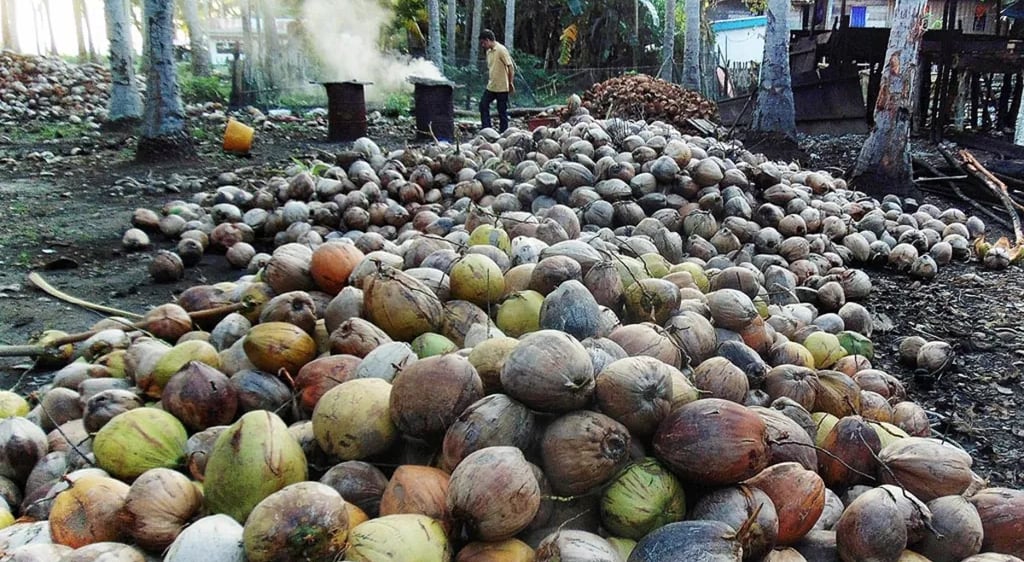Indonesia’s Competitive Advantage in the Global Coconut Industry
Discover why Indonesia leads the global coconut industry through sustainable practices, rich biodiversity, and competitive export strategies that meet global demand.
Admin
8/2/20252 min read


Indonesia’s Competitive Advantage in the Global Coconut Industry
Indonesia is not just the world’s largest archipelago—it is also a global powerhouse in the coconut industry. With over 3.4 million hectares of coconut plantations and a production volume that consistently ranks among the highest worldwide, Indonesia has built a strong, sustainable, and export-oriented coconut sector. From raw coconuts to high-value derivatives like desiccated coconut, coconut oil, coconut sugar, and charcoal briquettes, Indonesian coconut products have become indispensable to international markets.
1. Abundant Natural Resources
Indonesia’s tropical climate and fertile soil provide ideal conditions for coconut cultivation. Regions such as Sulawesi, North Sumatra, Lampung, and East Java have long-established coconut farming communities, ensuring a stable supply chain throughout the year.
2. Diverse Coconut Derivatives
Exporters in Indonesia offer a wide range of coconut-based products:
Desiccated Coconut
Organic Coconut Sugar
Coconut Charcoal Briquettes
Virgin Coconut Oil (VCO)
Coconut Cream and Milk
Coconut Water
Semi-Husked Coconuts
This diversity allows exporters to cater to various industries including food and beverage, cosmetics, pharmaceuticals, and renewable energy.
3. Focus on Organic and Sustainability Standards
With rising global demand for organic and sustainably sourced products, Indonesian exporters have adapted quickly. Many producers have obtained certifications such as:
USDA Organic
EU Organic
JAS (Japan)
ISO and HACCP for food safety
This has positioned Indonesia favorably in premium markets like the USA, Europe, and Japan.
4. Skilled Workforce and Local Expertise
Indonesia’s long tradition in coconut farming and processing provides deep-rooted industry know-how. From smallholder farmers to modern coconut processing facilities, the expertise is vast and growing—backed by government support and export incentives.
5. Strategic Export Infrastructure
Indonesia boasts over 100 ports and export facilities. Major coconut-producing regions have access to international shipping routes, supported by government initiatives to streamline logistics and reduce export bottlenecks.
6. Growing Global Demand
The global shift toward plant-based diets and natural products has further increased demand for coconut-based goods. Indonesian exporters are capitalizing on this trend with competitive pricing, quality assurance, and reliable delivery.
Conclusion:
Indonesia’s coconut industry has every ingredient for global success: natural abundance, innovation, certification, and strategic logistics. As health-conscious consumers and sustainable sourcing become central to global trade, Indonesian coconut products—especially when organic and ethically produced—are poised to dominate international markets.



